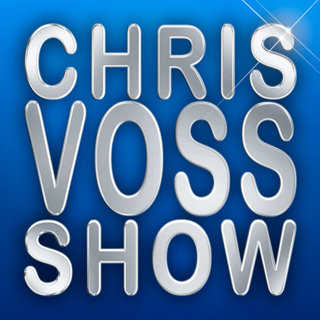
The Chris Voss Show Podcast – JFK’s Ghost: Kennedy, Sorensen and the Making of Profiles in Courage by David R. Stokes
JFK's Ghost: Kennedy, Sorensen and the Making of Profiles in Courage by David R. Stokes "I'd rather win a Pulitzer Prize than be President of the United States," John F. Kennedy confided to author Margaret Coit shortly after his election to the Senate in 1953. Kennedy got his wish four years later, when his book Profiles in Courage was awarded the Pulitzer for biography--even though it wasn't among the finalists for the prize. The role of Kennedy's speechwriter Ted Sorensen in drafting and crafting the main chapters in the book was never acknowledged by Kennedy's inner circle. And Kennedy was hyper-sensitive until his dying day about rumors that cast doubt on his authorship of Profiles. Sorensen was in many ways Kennedy's "alter ego," a man described as Kennedy's "intellectual blood-bank." But Jackie Kennedy found the relationship between her husband and his speechwriter to be "creepy." Still, Jack Kennedy the writer is an often overlooked part of the Kennedy narrative that helped propel his political career. And when Kennedy's authorship of Profiles and the legitimacy of his Pulitzer Prize were challenged on Mike Wallace's national television show by the popular columnist Drew Pearson, JFK's political future was imperiled. If the rumors surrounding the authorship of Profiles in Courage had been confirmed as true prior to his ascendance to the Presidency, there might have been no brief and shining moment in America now remembered as Camelot. About David R. Stokes David R. Stokes is a Wall Street Journal bestselling author. His book, THE SHOOTING SALVATIONIST, appeared twice on the Wall Street Journal Bestseller list in 2011. This story has been republished (2019) titled, APPARENT DANGER. Screenplays based on two of his novels, CAMELOT'S COUSIN and JACK & DICK, are currently being represented for production in Hollywood. Retired FBI Agent and Bestselling author, Bob Hamer, says, "David Stokes combines his meticulous research with a writing style which makes you feel as though you are that fly-on-the-wall witnessing history as it unfolds." David grew up in the Detroit, Michigan area and has been an ordained minister for more than 40 years. Now retired from pastoral ministry, he writes full-time. David has been married to his wife, Karen, since 1976, and they have been blessed with three daughters--all now grown and with wonderful children of their own. There are, in fact, seven grandchildren, a fact verified by hundreds--maybe thousands--of pictures, as well as an ever-growing collection of toys and gadgets joyously cluttering their home. Visit David's website: http://www.davidrstokes.com
8 Jun 202128min

The Chris Voss Show Podcast – Culture Hacker by Shane Green, Founder & President of SGEi
Culture Hacker by Shane Green, Founder & President of SGEi SGEinternational.com ShaneGreen.com HACK YOUR WORKPLACE CULTURE FOR GREATER PROFITS AND PRODUCTIVITY "I LOVE THIS BOOK!" ―CHESTER ELTON, New York Times bestselling author of All In and What Motivates Me "When companies focus on culture, the positive effects ripple outward, benefiting not just employees but customers and profits. Read this smart, engaging book if you want a practical guide to getting those results for your organization." ―MARSHALL GOLDSMITH, executive coach and New York Times bestselling author "Most books on customer service and experience ask leaders to focus on the customer first. Shane turns this notion on its head and makes a compelling case why leaders need to make 'satisfied employees' the priority." ―LISA BODELL, CEO of Futurethink and author of Why Simple Wins "This is a must read for anyone in a customer service-centric industry. Shane explains the path to creating both satisfied customers and satisfied employees." ―CHIP CONLEY, New York Times bestselling author and hospitality entrepreneur The question is not, "does your company have a culture?" The question is, "does your company have a culture that fosters outstanding customer experiences, limits employee turnover, and ensures high performance?" Every executive and manager has a responsibility to positively influence their workplace culture. Culture Hacker gives you the tools and insights to do it with simplicity and style. Culture Hacker explains: Twelve high-impact hacks to improve employee experience and performance How to delight and retain a multi-generational workforce The factors determining whether or not your employees deliver outstanding customer service
8 Jun 202134min

The Chris Voss Show Podcast – John Storm President of JL&S Enterprises
John Storm President of JL&S Enterprises Luminaerdistributing.com
6 Jun 202129min

The Chris Voss Show Podcast – Yes, Daddy by Jonathan Parks-Ramage
Yes, Daddy by Jonathan Parks-Ramage "A gut-churning, heart-wrenching, blockbuster of a first novel . . . Parks-Ramage is an extraordinary new talent and Yes, Daddy is truly something special." —Kristen Arnett, author of Mostly Dead Things A propulsive, scorching modern gothic, Yes, Daddy follows an ambitious young man who is lured by an older, successful playwright into a dizzying world of wealth and an idyllic Hamptons home where things take a nightmarish turn. Jonah Keller moved to New York City with dreams of becoming a successful playwright, but, for the time being, lives in a rundown sublet in Bushwick, working extra hours at a restaurant only to barely make rent. When he stumbles upon a photo of Richard Shriver—the glamorous Pulitzer Prize–winning playwright and quite possibly the stepping stone to the fame he craves—Jonah orchestrates their meeting. The two begin a hungry, passionate affair. When summer arrives, Richard invites his young lover for a spell at his sprawling estate in the Hamptons. A tall iron fence surrounds the idyllic compound where Richard and a few of his close artist friends entertain, have lavish dinners, and—Jonah can’t help but notice—employ a waitstaff of young, attractive gay men, many of whom sport ugly bruises. Soon, Jonah is cast out of Richard’s good graces and a sinister underlay begins to emerge. As a series of transgressions lead inexorably to a violent climax, Jonah hurtles toward a decisive revenge that will shape the rest of his life. Riveting, unpredictable, and compulsively readable, Yes, Daddy is an exploration of class, power dynamics, and the nuances of victimhood and complicity. It burns with weight and clarity—and offers hope that stories may hold the key to our healing.
5 Jun 202117min

The Chris Voss Show Podcast – Electric City: The Lost History of Ford and Edison’s American Utopia by Thomas Hager
Electric City: The Lost History of Ford and Edison’s American Utopia by Thomas Hager The extraordinary, unknown story of two giants of American history—Henry Ford and Thomas Edison—and their attempt to create an electric-powered city of tomorrow on the Tennessee River During the roaring twenties, two of the most revered and influential men in American business proposed to transform one of the country’s poorest regions into a dream technological metropolis, a shining paradise of small farms, giant factories, and sparkling laboratories. Henry Ford and Thomas Edison’s “Detroit of the South” would be ten times the size of Manhattan, powered by renewable energy, and free of air pollution. And it would reshape American society, introducing mass commuting by car, use a new kind of currency called “energy dollars,” and have the added benefit (from Ford and Edison's view) of crippling the growth of socialism. The whole audacious scheme almost came off, with Southerners rallying to support what became known as the Ford Plan. But while some saw it as a way to conjure the future and reinvent the South, others saw it as one of the biggest land swindles of all time. They were all true. Electric City is a rich chronicle of the time and the social backdrop, and offers a fresh look at the lives of the two men who almost saw the project to fruition, the forces that came to oppose them, and what rose in its stead: a new kind of public corporation called the Tennessee Valley Authority, one of the greatest achievements of the New Deal. This is a history for a wide audience, including readers interested in American history, technology, politics, and the future.
4 Jun 202138min

The Chris Voss Show Podcast – Proof of Life: Twenty Days on the Hunt for a Missing Person in the Middle East by Daniel Levin
Proof of Life: Twenty Days on the Hunt for a Missing Person in the Middle East by Daniel Levin “Truly thrilling. Daniel Levin brilliantly conveys both the menace and the evil of Middle Eastern intrigue, and some victories of human kindness over cruelty and despair.” —Daniel Kahneman, New York Times bestselling author of Thinking, Fast and Slow “In laying bare the raw human toll of the ferocious and cruel Syrian conflict, Proof of Life asks the reader to make a choice between cynicism and compassion.” —Ayaan Hirsi Ali, New York Times bestselling author of Infidel Daniel Levin was in his New York office when he got a call from an acquaintance with an urgent, cryptic request to meet in Paris. A young man had gone missing in Syria. No government, embassy, or intelligence agency would help. Could he? Would he? So begins a suspenseful, shocking, and at times brutal true story of one man’s search to find a missing person in Syria over twenty tense days. Levin, a lawyer turned armed-conflict negotiator, chases leads throughout the Middle East, meeting with powerful sheikhs, drug lords, and sex traffickers in his pursuit of the truth. In Proof of Life, Levin dives deep into the shadows—an underground industry of war where everything is for sale, including arms, drugs, and even people. He offers a fascinating study of how people use leverage to get what they want from one another and of a place where no one does a favor without wanting something in return, whether it’s immediately or years down the road. A fast-paced thriller wrapped in a memoir, Proof of Life is a cinematic must-read by an author with access to a world that usually remains hidden.
4 Jun 202143min

The Chris Voss Show Podcast – 200 Years of American Financial Panics: Crashes, Recessions, Depressions, and the Technology that Will Change It All by Thomas P. Vartanian
200 Years of American Financial Panics: Crashes, Recessions, Depressions, and the Technology that Will Change It All by Thomas P. Vartanian From 1819 to COVID-19, 200 Years of American Financial Panics offers a comprehensive historical account of financial panics in America. Through a meticulous dissection of historical events and the benefit of his experience handling many of the country’s largest bank failures, Thomas P. Vartanian reveals why so many more devastating financial crises have occurred in America than nearly every other country in the world. Vartanian provides extensive evidence of how the collision of policy-driven government actions and profit-oriented business performance have disrupted market equilibrium and made the U.S. system of financial oversight less effective and more susceptible to missing the signs of future financial crises, including policies that: imposed tariffs and chartered dozens of poorly regulated, uncapitalized state banks that facilitated panics in the 19th century; created ambivalence over whether gold, silver or paper money should be the preeminent form of payment, creating the perfect conditions for the depression of 1893; kept interest rates low to assist the central banks in England, Germany and France, allowing an overheated U.S. stock market to shift into overdrive and crash in 1929; planted the seeds of the S&L crisis more than twenty years before when Congress imposed artificial limits on deposit interest rates and the states capped mortgage interest rates to increase homeownership; pressured banks in the 1990’s to increase mortgage lending to increase home ownership while the Fed engaged in loose monetary policies, adding fuel to the greatest economic crisis since the Great Depression. 200 Years of American Financial Panics dissects financial crises in a way not attempted before, concluding that the pyramid of governmental oversight intended to foster economic safety and stability has been turned on its head to its detriment. Vartanian provides readers with a unique list of practical solutions. Most importantly, his analysis of financial technology, from artificial intelligence and Big Data to cryptocurrencies and quantum computing, forecasts how financial markets and government regulation will change. 200 Years of American Financial Panics is a must read for anyone that wants to understand their money, financial markets, and how they are going to change in the future. About Thomas P. Vartanian Thomas P. Vartanian is the Executive Director of the Program on Financial Regulation & Technology at George Mason University's Antonin Scalia Law School, where he is also a Professor of Law. Before joining Scalia Law School, he chaired the Financial Institution's practices at two international law firms, Dechert LLP and Fried Frank LLP, through four financial crises. Both as a regulator and private practitioner, he has been involved in 30 of the 50 largest bank failures in American history, developing a deep understanding of the causes of financial collapses. He has been described by clients in Chambers as "one of the best financial services lawyers in America." Mr. Vartanian served in the Reagan Administration as General Counsel of the Federal Home Loan Bank Board and the FSLIC, where he authorized the receivership, sale, or liquidation of hundreds of failed institutions in the S&L crisis, including the first national and cross-industry financial institution combinations in the country. Prior to that, he served in the Carter Administration in the Office of the Comptroller of the Currency as Special Assistant to the Chief Counsel. Mr. Vartanian is a futurist and expert in financial technology. He was Chairman of the American Bar Association's Cyberspace Law Committee between 1998 and 2002, where he chaired an international task force of lawyers from twenty countries which issued a seminal report on the novel issues created at that time by doi...
3 Jun 202144min

The Chris Voss Show Podcast – Modern Epidemics: From the Spanish Flu to COVID-19 by Salvador Macip
Modern Epidemics: From the Spanish Flu to COVID-19 by Salvador Macip COVID-19 has made us all aware of the fact that we live in a world full of invisible enemies. Normally, we don’t even realize they’re there, but from time to time one of these microscopic creatures becomes powerful enough to turn everything upside down. What are these invisible enemies, and how can we prepare ourselves for the pandemics of the future? A specialist in the cellular biology of diseases, Salvador Macip explains, in a language everyone can understand, what it means to share the planet with millions of microbes – some wonderful allies, others terrible foes. He provides a concise account of epidemics that changed history, and focuses on the great modern plagues that are still causing millions of deaths every year, from influenza, TB and malaria to COVID-19. Macip also examines the methods we have used – from vaccines to improved sanitation and social distancing – to try to control these invisible enemies. This authoritative overview of modern epidemics and the pathogens that cause them will be essential reading for anyone who wants to understand our world today, a world in which some of the greatest threats to the human species come from the invisible microbes with which we share this planet.
1 Jun 202135min





















